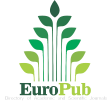What Global Censorship Studies Tell us About Hong Kong’s Media Future
DOI:
https://doi.org/10.22032/dbt.47740Keywords:
media systems, authoritarian, censorship, press freedomAbstract
China imposed a new National Security Law on its Special Administrative Region (SAR) of Hong Kong in mid-2020. The deployment of this legal weapon, combined with other actions of local authorities that have grown noticeably more irritable and vindictive, means that Hong Kong media no longer enjoy the freedom from government restrictions that they had been accustomed to.
Hong Kong has thus joined the ranks of the many societies with media environments that are semifree and semi-closed. These societies’ experiences indicate that arrests and bans, while attracting the most attention, are not what inflict the most damage in the long run. As alarming as the ongoing legal actions are, citizens’ access to information and ideas is more likely to be restricted by less spectacular and coercive means, including economic carrots and sticks that encourage a culture of self-censorship. Such an environment requires new mindsets and skillsets among journalists.
Downloads
Published
How to Cite
Issue
Section
License
Copyright (c) 2020 Cherian George

This work is licensed under a Creative Commons Attribution 4.0 International License.








